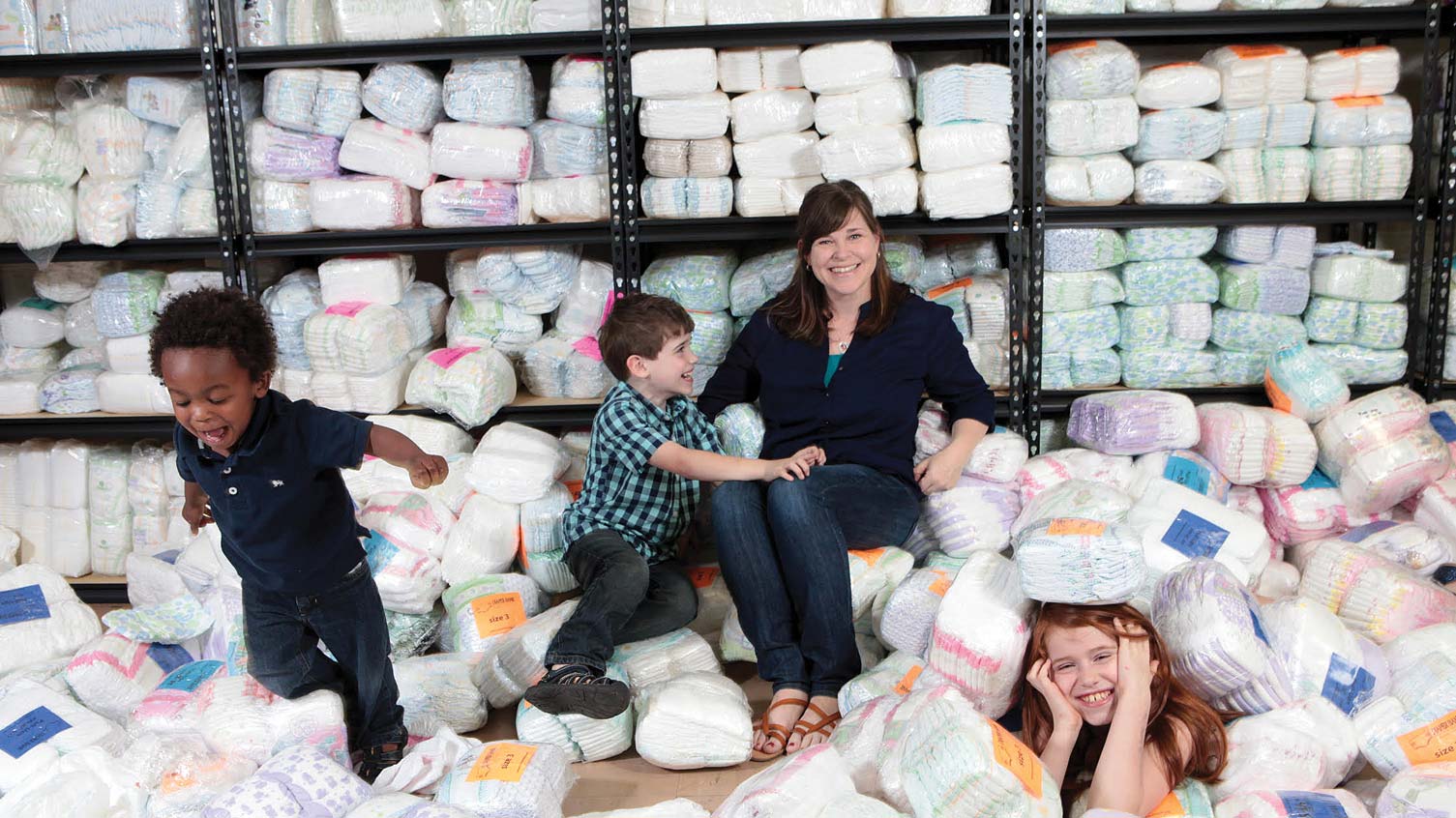Diapers by the Dozens
Michelle Old ’00 answered a call for social justice by getting an essential product to parents in need.

By Sarah Nagem
Even before she had children of her own, Michelle Old ’00 knew through her work with women affected by domestic violence that some moms desperately struggle to afford diapers. “I would have a lot of clients that would go back to abusive relationships because they said he provides diapers,” Old says. “A mother is going to do whatever she needs to do to take care of her babies.”
When Old, now 51, had an infant son, that reality hit home. Rashes regularly sent him to the emergency room, and she was changing his diaper up to 30 times a day. Thinking about all the families that wouldn’t be able to afford such care, Old started the Diaper Bank of North Carolina from her kitchen table in 2013. “Everyone said to me, ‘What’s a diaper bank?’” Old says. “And I said, ‘I don’t know, but I’m going to figure it out.’”
Eight years later, the nonprofit has distributed more than 14 million diapers from three locations in North Carolina and is now one of the largest diaper banks in the United States. But the group’s mission is about more than diapers. “Just handing someone a box of diapers is really not going to help them long term,” Old says. So she and the bank focus on connecting families in need to resources that can provide food or help with utility bills.
During the coronavirus pandemic, Old says, requests for diapers have increased 400%. Requests for feminine hygiene products and incontinence supplies for adults, also provided by the organization, have skyrocketed as well. With monetary donations as well as donations of diapers and supplies, they have been able to keep up with the need.
Old’s children are now 16, 14, and 9, but her passion for helping other families remains, especially those living in poverty who don’t have access to big-box stores where items are often cheaper. “This really is a social justice issue,” she says, “and until we can value dignity items and hygiene items for our community members, my work isn’t done.”


